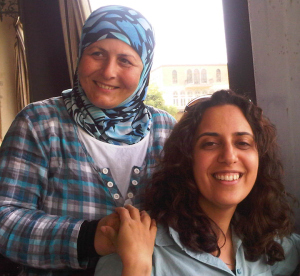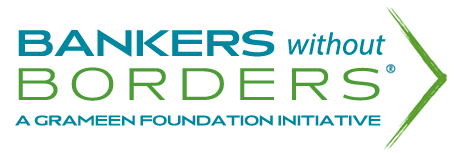Asking the Right Questions Makes All the Difference
Sally Salem was an Atlas Corps Fellow at Grameen Foundation, where she worked with the human capital management team for a year learning and designing toolkits to support the strategic adoption of human capital practices at microfinance institutions. Sally has more than a decade of experience in non-formal education and development and has worked with adults and young people on issues ranging from youth participation, volunteering, intercultural learning and human-rights education. After working with Grameen Foundation’s Human Capital Center for a year as an Atlas Fellow, it was time to return to Egypt. Looking back now on my year-long stay, I realize that I was lucky to have had Grameen Foundation as my host and to have worked with the human capital management team. Thanks to good timing, one month after my fellowship ended, I had an opportunity to put all the theory I had learned into practice. I was invited to support an engagement with the Lebanese Association for Development-Al Majmoua, a leading microfinance NGO in that country, part of a collaborative effort between Grameen Foundation's Human Capital Center and Grameen-Jameel Microfinance Ltd., a joint venture between Grameen Foundation and the ALJ Foundation, a subsidiary of the Abdul Latif Jameel Group. My task was to help facilitate a human capital management assessment – the starting point for aligning an organization’s people practices with its business strategy. As a native Arabic speaker with working experience in Lebanon and deep familiarity with the assessment, I was eager to volunteer my services through Grameen Foundation’s skilled-volunteer initiative, Bankers without Borders®.
 In Sidon, Lebanon, Sally (right) met Osama – a photographer and Al Majmoua client – who is carving out a niche in her city’s male-dominated photography industry.
In Sidon, Lebanon, Sally (right) met Osama – a photographer and Al Majmoua client – who is carving out a niche in her city’s male-dominated photography industry.
